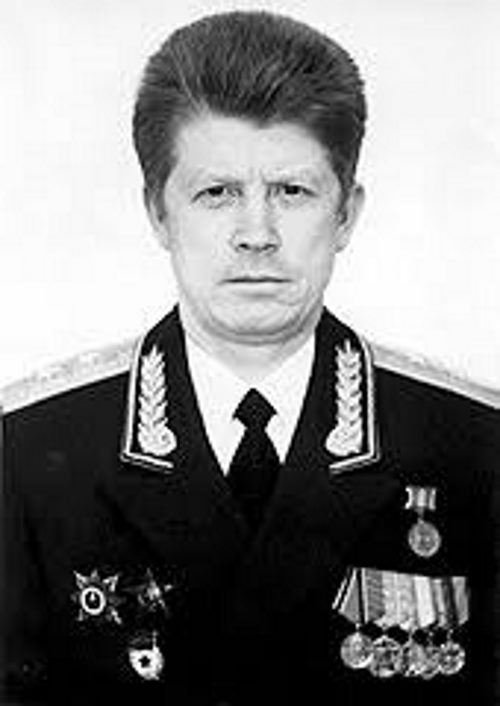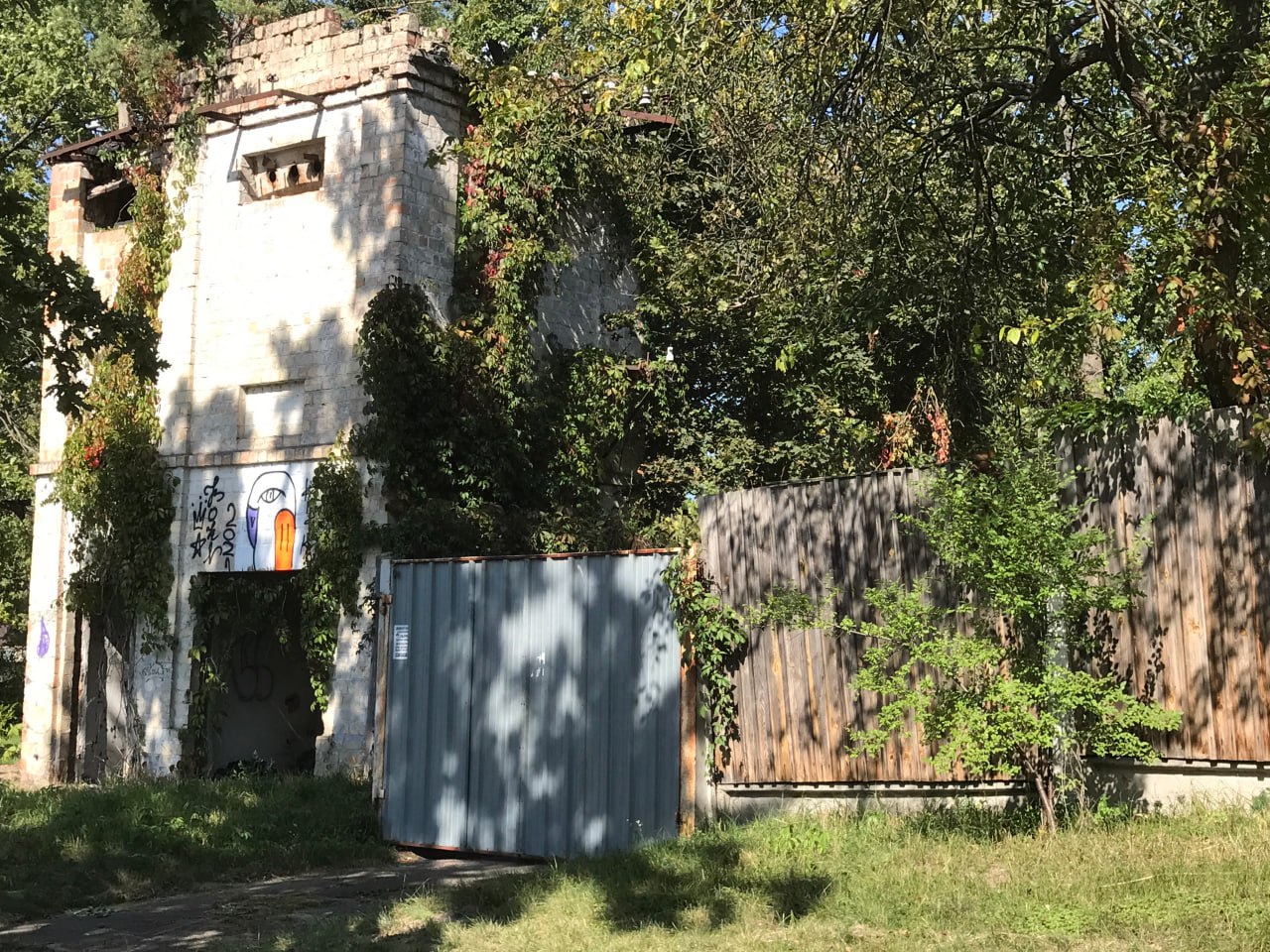As a legacy from the Soviet Union, Ukraine inherited so-called state dachas, which were part of an unofficial privilege system for high-ranking officials
During the period of Independence, some of this property was sold, with the proceeds directed to the state budget. A certain number of "cottages" were permitted for privatization. Meanwhile, many houses still remain classified as state or departmental dachas. The Ministry of Defense of Ukraine also possesses such property on the outskirts of Kyiv, in Pushcha-Vodytsia.
 5
5 A bit of history. At the beginning of Independence, the then commander of the Kyiv Military District, Colonel General Viktor Chechevatov, lived with his wife at service dacha No. 1 in Pushcha-Vodytsia. Traditionally, this two-story house was always assigned to the top official of the military district appointed by Moscow. Before Chechevatov, General Boris Gromov lived here.
 6
6 Chechevatov was an ardent opponent of Ukrainian independence; in January 1992, he refused to take an oath of allegiance to Ukraine and fled to Russia. That same year, the Ukrainian prosecutor's office opened a criminal case regarding the sale of a passenger car purchased with military funds to an unknown company at Chechevatov's personal order. Later, the investigation materials ended up on an archival shelf. It was buried...
After the first Minister of Defense of independent Ukraine, General Konstantin Morozov, was appointed, Konstantin Petrovich was offered accommodation at dacha No. 1 in Pushcha-Vodytsia in 1991. However, the principled Morozov, as his advisor recounted to me, categorically refused, ordering that two homeless servicemen be housed there instead. A few years later, they moved to permanent homes provided by the Ministry of Defense.
“Dacha Garrison”
The dacha remained vacant. Then for a while, someone from the new defense ministers lived there, but it didn’t last long. For some reason, this “cottage” did not attract high-ranking officials very much. Although the rooms were well renovated, and the sauna was updated. Gazebos, healing air, a pine forest, about 20 acres of land.
 7
7 Even before the onset of large-scale Russian aggression, residents of Pushcha-Vodytsia told me that no one had lived in dacha No. 1 for a long time. The building was deteriorating, and the fence around it was falling apart. People were surprised why soldiers, led by an officer, constantly patrolled the area for decades. Is it reasonable to maintain a “dacha garrison” here? Why doesn’t the military department want to sell this property to replenish the state treasury? Instead of maintaining the general's dacha, the soldiers from the General Staff's security brigade could train at a training ground.
 8
8 Andriy Taran first heard about dacha No. 1
In October 2021, during a briefing for the opening of an exhibition of military equipment and weapons in the capital's Mykhailivska Square, I asked then-Minister of Defense Andriy Taran if the servicemen of the Armed Forces of Ukraine should guard departmental dacha No. 1 of the defense ministry. What could be the future of this property? Taran's response surprised me greatly:
“I don’t know which dacha you’re referring to,” the minister replied. “We have Ministry of Defense facilities that are guarded. This question, perhaps, is not for the minister but for some security officers. I don’t guard facilities.”
 9
9 Searching for the security officers was a futile endeavor...
Scandal: Commander Robbed
Now let’s return to the scandalous past of special dacha No. 1, when General Chechevatov lived there.
In early July 1991, Chechevatov urgently summoned the military prosecutor of the Kyiv garrison, Anatoliy Lisovets (about these events, I was told by employees of the prosecutor's office). It turned out that an extraordinary event had occurred at the dacha, which was under strict protection: it had been robbed. On July 5, Prosecutor Lisovets opened a criminal case regarding this fact, noting in the resolution that a tape recorder “Sharp-800” and other property belonging to citizen Lydia Chechevatova were stolen, amounting to over two thousand karbovanets.
 0
0  1
1 The best investigators received orders to urgently find the thieves who had the audacity to break into the rooms of the chief military commander. On the second floor of the residence, they found fingerprints of the criminals. Later, Chechevatov's wife also reported that her Yugoslav shoes, “nine bottles of imported shampoo, French perfume 'Magnolia', various French creams in tubes, ten bottles of deodorant” were missing. Lydia Chechevatova detailed even the smallest trinket that the uninvited guests had taken. In other words, they took everything “earned through honest labor.”
 2
2 The thieves also found the place where the general's safe was kept. They managed to open it, as the key was in the... safe. According to Chechevatova, it contained “tapes for the tape recorder, a mechanical watch worth 110 dollars...” And also – gold and various jewelry...
Night “Service” of the General's Staff
Chechevatova recalled that on June 30, she was not at the dacha for two hours, and it was during this time that the thieves could have entered. She suggested that it was the work of the soldiers who guarded the general. She even named the conscript Alexander Fanta from Svitlovodsk, who had previously been in the general's “service” at the dacha and later was discharged. Chechevatova’s keen eye noticed that after Fanta’s discharge, he reappeared at this dacha and lived here for several days in the service basement. He knew the layout of the rooms well.
 3
3 Fanta was friends with the driver of one of the general's service reserve cars – conscript Leonid Plotnikov. The car served Lydia Chechevatova, and the driver fulfilled all her orders. However, on the “Volga,” the driver and his friends sometimes allowed themselves to go into the city, to hang out with girls... Everyone was a bit tipsy. In short, it was fun. Nearby, in the woods by the dacha, the soldiers from the general's staff held a party with girls and drank... Here’s what Leonid Plotnikov later wrote in his explanation:
“...I had drunk about 200 grams of homemade vodka. Someone from the company asked me to take Misha and his acquaintance to Nyvky. I took them. Besides them, Sergei and Maznychenko got into the car. I returned around four in the morning.”
 4
4 In this company was also the signalman Ivlev from the commander's communication unit.
The “friendly” group (five young men and girls) even allowed themselves to have fun in the general's sauna at night – to enter here, they turned off the alarm.
During the day, the general's staff was strictly ordered to stay in their semi-basement and not to show themselves to the commander if he was present. Chechevatov was a tyrant by nature, a cruel person. A warrant officer, his orderly, closely monitored the order on the territory. But at night, as we can see, the soldiers allowed themselves to “party.”
 5
5 This criminal story had an unexpected and clearly atypical ending. Experienced military investigators could not find the thieves, even despite the fingerprints found. The military prosecutor's office transferred the materials of the criminal case to the district police department. One day, an unknown person brought a “Sharp” tape recorder to the sanatorium nearby and asked to pass it to the commander's wife. None of the Yugoslav shoes, perfumes, Japanese watches, or gold items were returned...
After the theft, all the staff at the general's dacha were replaced. Other soldiers arrived here.
 6
6 ***
On October 22, 1991, at a session of the Verkhovna Rada of Ukraine, Commander of the Kyiv Military District Colonel General Chechevatov spoke. (By that time, Konstantin Morozov had already been appointed as the first Minister of Defense of Ukraine.) From the parliamentary podium, Chechevatov tried to convince the deputies that the establishment of the Armed Forces of Ukraine would be a significant burden on the state budget, which would even lead to a “violation of European and world parity.” In short, he was rambling. His speech boiled down to one question: why does Ukraine need its own army? Even the chairman of the session, Ivan Plyushch, could not withstand this nonsense, reproaching him:
“It seems that the general has not heard about the development of Ukraine’s military doctrine and